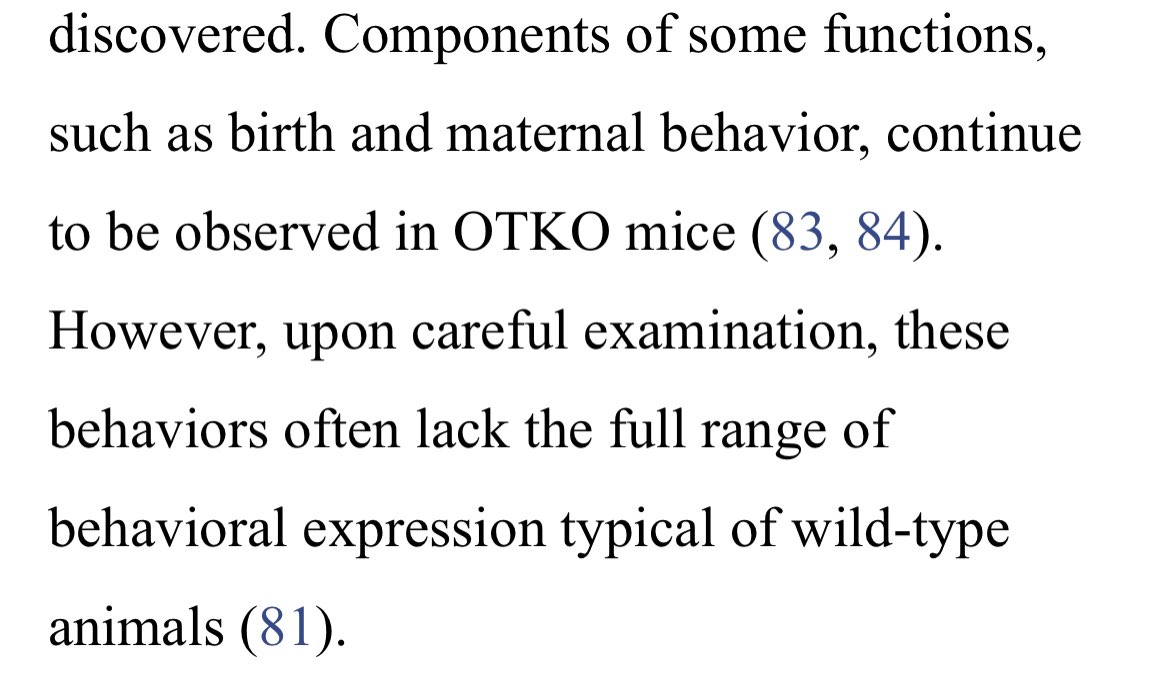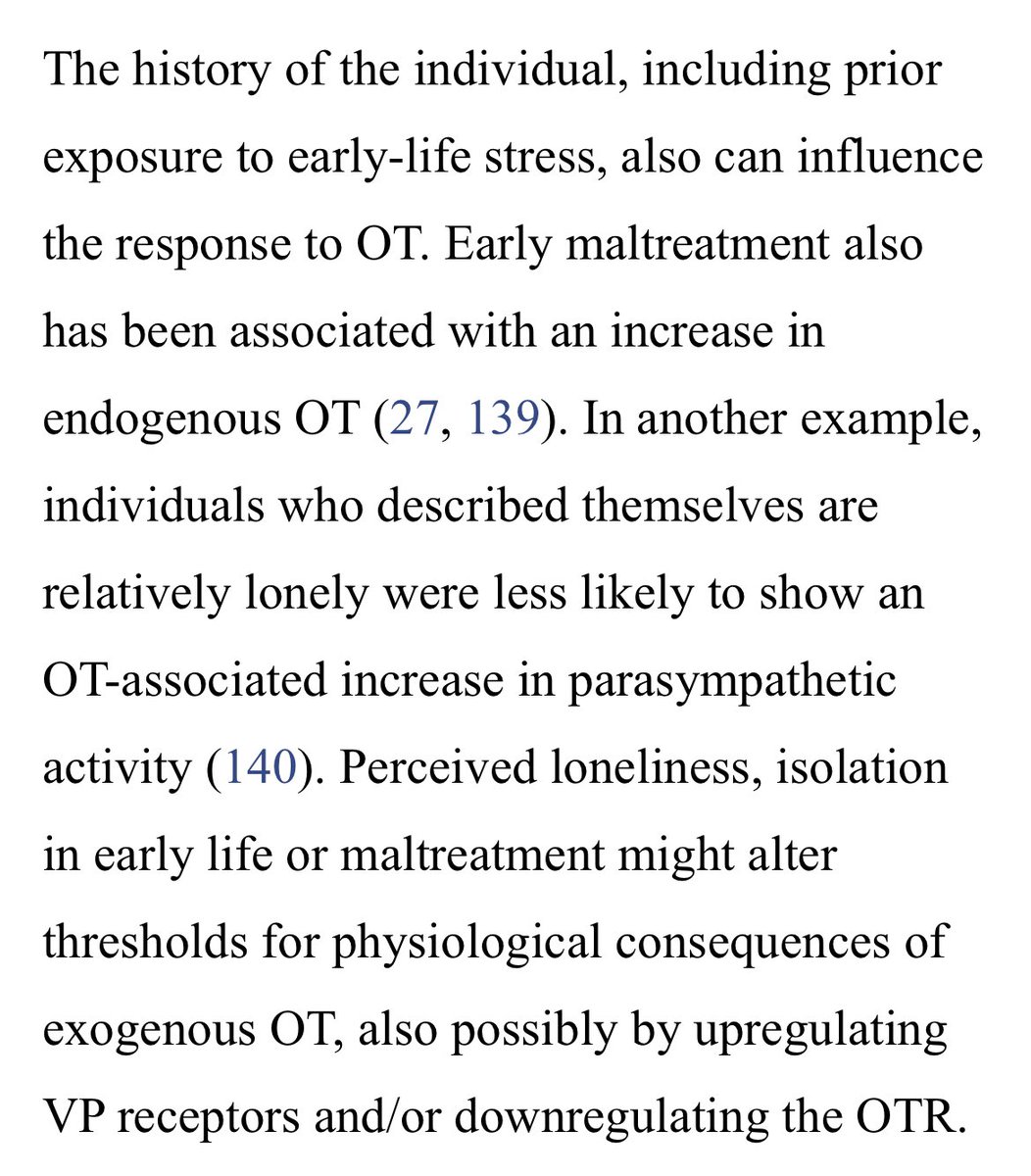If you’re interested in the neurology of attachment, this paper is fascinating. ncbi.nlm.nih.gov/pmc/articles/P…
Based on cursory reading, it’s possible that vasopressin is responsible for bonding while under stress. Oxytocin helps us bond during love and happiness which would not activate under stress. But vasopressin can bond to oxytocin receptors and help us connect when stressed. 

Vasopressin is also more prevalent in male mammals, especially social mammals. That may explain why men bond better during shared stressful activity like war while women bond better during emotional vulnerability. 

This appears to explain further why men bond best while protecting or providing for) their loved ones. Acting out of love is vasopressin while loving in leisure is oxytocin. We already know men don’t bond through sex via oxytocin like women do, but do bond through stress trials. 

This appears to explain the human need for both security and excitement in human pairbonding. It joins the couple through both oxytocin and vasopressin. Refreshing each in their turns can extend the life of the bond. 

This appears to explain why after trauma a person may bond almost exclusively through vasopressin even if they struggle to bond at all through oxytocin. Their brain learns to bond only through stress. 

This may explain why some women with severe early life trauma struggle to bond to their children, since women bond with their children largely through oxytocin especially at vaginal birth and through breastfeeding. 

This passage may explain why some traumatized men who’ve experienced little kindness in life may “soften” to everyone when they have someone they love who can provide them with oxytocin, for example a child or patient partner. 

Protection and defense of self tied to vasopressin which is higher in males. Males and females respond chemically different to that need to defend. 

Ever heard a traumatized veteran say they wish they could go back to the war? This may be why. Their anxiety actually goes down in those environments once they’ve been conditioned to them. 

Here’s where men and women differ. After orgasm, women bond to their partner via oxytocin. But men appear to bond through vasopressin which makes them sexually protective of their reproductive partner. She says “We’re so in love” and he says “Nobody touch my stuff.” 

Oxytocin not only makes you feel close to certain people but may make you more likely to want to be close to more people. Does a lack of oxytocin produce the opposite desire? 

This passage may explain why young people today are not seeking relationships. Their pathways may be blocked so they just don’t seek bonds. 

This may explain why a person who receives very little love and who finally enters an oxytocin-generating relationship may become hyper-jealous and protective of their mate. 

This passage suggests that women who are abused or neglected early in life may become afraid of oxytocin-generating relationships because they’ve been conditions to fear emotional closeness and the perception of safety. 

Better oxytocin within your group may make you less accepting of outsiders. Does less oxytocin make you more receptive? Does that explain insular family communities versus urbanite acceptance of foreigners? 

Read the whole paper here: ncbi.nlm.nih.gov/pmc/articles/P…
• • •
Missing some Tweet in this thread? You can try to
force a refresh















